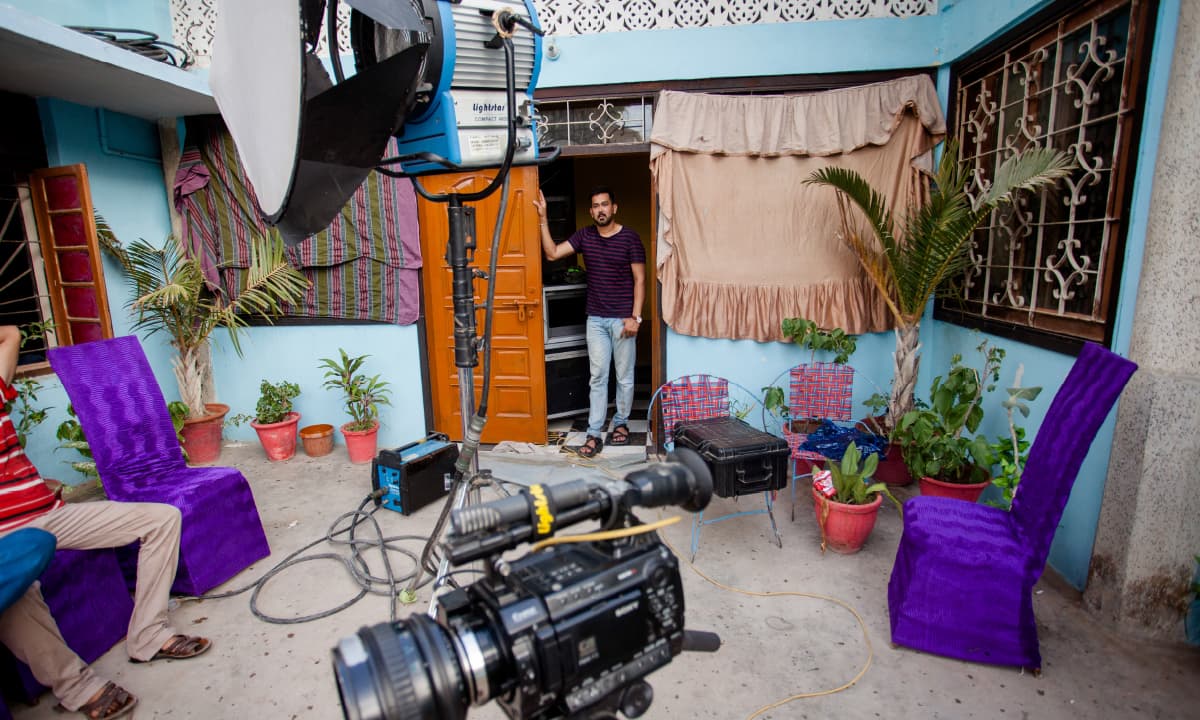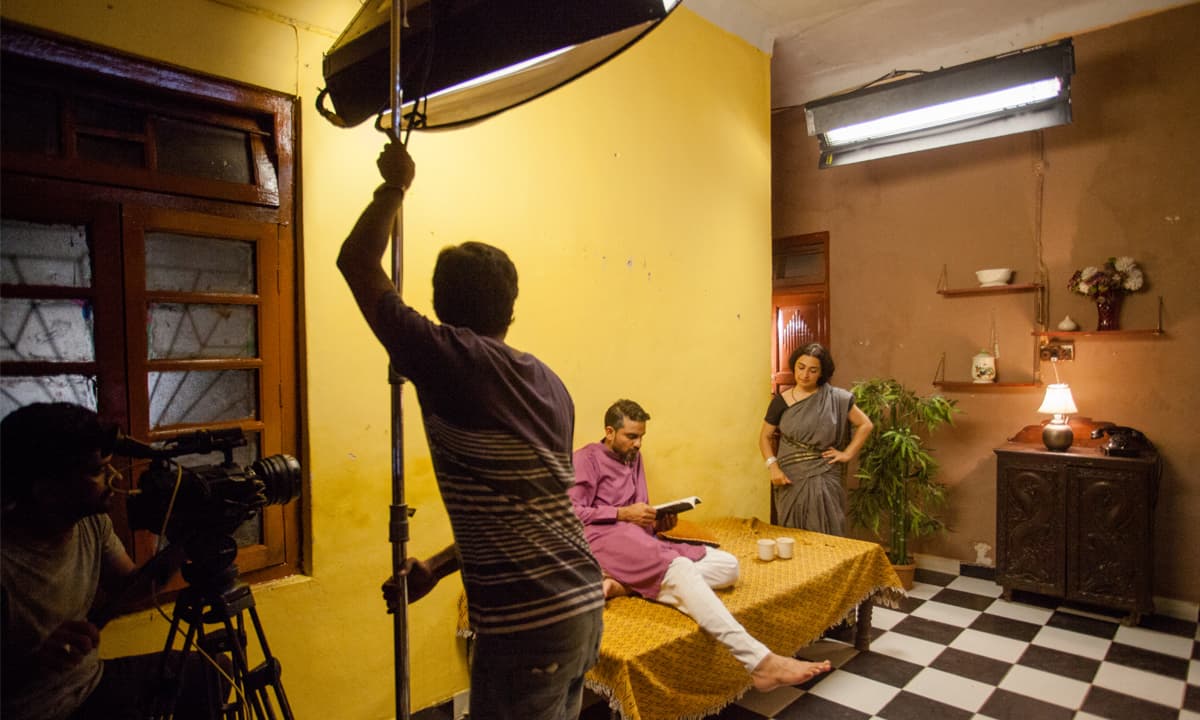
Once upon a time there was a girl bear who was uneasy about the coming winter, so she collected a lot of nuts and fruit and tofu and chia seeds and other vegetarian fare and crawled into her cave with her organically produced fleece blanket and air pillow (filled with pure Oxygen), shed her faux fur-lined slippers, stretched, yawned, curled up and fell asleep. For fifteen years.
When she woke up and poked her grizzly, unkempt head out of her alpine sleeping bag (filled with down feathers sourced from freely-migrating Siberian geese, not captive and incapacitated ducks), she realised that the tofu had become green with fungus, that the ants had eaten the chia seeds, that the fruit had rotted, and the nuts, well, the nuts had turned to dust. She sniffed the air, recognising the distinct smell of diesel fumes, and crawled to the entrance of her girl-cave. Nothing seemed to have changed; the other animals went about their business as they always had, haphazardly, in a daze, knocking into each other now that there were so many more in the Forest of No Return, for fifteen years was a long time, and while the girl bear was sleeping, the others had been up to their old tricks, coupling and bringing forth more like them, adding to the general mayhem of the jungle where only the Pure Breeds lived. Seeing all this, the girl bear despaired.
There was no order to anything, the leaves on the trees were mottled, the sky the colour of old bones. Large animals carried multiple small ones on their backs with no regard for their safety. The King of Loins robbed everyone’s food and hoarded it in a cave along with other stolen goods and his families’ iqaamas, and strange, bearded creatures strutted around with sharp, pointed tusks thrust towards anyone who dared to cross their path. So the girl bear sighed, a long, drawn-out gasp smelling of berries and mould and sadness, and, gathering her nuts around her, she circled her cave thrice, settled down in the middle, and fell asleep again.
The End.

Fifteen years is a long time for even the grizzliest of bears to hibernate. That is how long I stayed away from the mind-boggling banality of the idiot box, minding my own business, mulling the myriad secrets of the universe, wondering when Panama began to rhyme with Pajama. This was a blissful time, full of long days staring at the wall or the sky, eyes following the circular path of majestic eagles as they flew over and hopefully defecated on the Circular Line of Many Hues mass transit which somehow had not succeeded in alleviating mass hysteria or mass confusion or mass ennui.
Over the years I have meaningfully contemplated the lint in my navel, asked myself profound questions like why naval officers wear white shoes, or why the hair dye used by men in our country comes only in two shades: boot polish black and Rexine briefcase ochre. On days when I felt especially adventurous, I snuck out of my hidey-hole and travelled to places the faint-hearted or lily-livered would dread.
I wrote books, made films, formulated management plans for cultural heritage sites impacted by large dams, protested against the wilful destruction of heritage both cultural and natural, went to court to protect my fellow creatures: the brown bear, the houbara bustard and the weary tiger dragged around at election time by a crowd of obsequious minions wishing to please the Lady of Rewind (“Mujhe kyun nikala, mujhe kyun nikala”). I watched good films, avoided endless political debate on myriad Squawk Shows and took long walks beneath tall trees, listening to birdsong at dawn and dusk, content that at least all was well with my world, even if everything else fell apart all around me.
And then, all sense betrayed me. All reason fled out of the window. All the promises I had made to myself, to protect my privacy, to give my time to things which mattered … all of these I broke with one fell blow: I agreed to ‘return’ to the idiot box, the slivered screen where wonders never cease, where writers churn out stories created from a template of multiple elements which can be thrown together in a variety of combinations, each combination unique and yet uncannily familiar.

I left behind my wall-to-wall bookshelves bulging with world literature and entered the world of wall-to-wall synthetic carpets stained with ketchup and quantities of unknown, dark, sticky and strange smelling liquids. I traded my solitude for the cacophony of conversations among crew who seemed to possess a rich vocabulary of four terms: “Sir-jee”, “Boss” (pronounced “Baoows”), “Good hai” (this can be alternated with “Done hai”) and, once the preceding three terms have been used to good effect, then a lengthier sentence is proffered to anyone who may seem to need solace: “Easy ho jaen”.
Indeed. I am “easy” now. Not, of course, in the sense that this term is used when a woman’s virtue is judged. I am “easy” now that I understand how it’s all done: how the stories that occupy the imagination of an unsuspecting viewership are conceived, developed, scripted, cast, produced and finally aired with the promise of the fragrance of floral washing powder and lemony washing soap wafting through our soporific lives.
I was easy now that I had agreed to play the role of a mother and a stepmother and a potential mother-in-law, all three for the price of one! For fifteen years I had turned down every offer for any of the three alluring options mentioned above. As a middle-aged, albeit “uneasy” citizen, I fit no other bill.
There was no possibility for me to play the role of a research scientist, or an oncologist saving lives, an astronaut living in space, an interior designer if not an architect. There were no scripts written for women lawyers, politicians, activists, civil servants, professors, information technology specialists, food technologists, entrepreneurs, pilots, telephone operators, nurses, construction workers, hairdressers, surgeons, seamstresses or farming women tending to the fields which produce our food and the clothes we wear.
These women did not exist in the pantheon of roles for women over the age of 35. These women did not exist in the plethora of scripts that are produced every month, at the rate of hundreds every year, spread over a dozen channels at least. These women did not exist in the imagination of the writers, the directors, the producers, nor the audience that lapped up the brain-curdling fare churned out ad nauseam every day.
For fifteen years, there had been no stories that could draw me out of self-imposed exile. When I woke up, I discovered that nothing had changed in the fifteen years since television had been privatised. If anything, the digital age has made it easier to produce hundreds of serials which all appear to consist of the same cast, based on the same story, perpetuating the same values embedded in misogyny and patriarchy. It was easy, you see, to assemble these stories out of a list of dependable options, a list that can be used by the simplest of minds to assemble facile entertainment for an audience that seems to be, well, for want of a better word, easy.
Here is how it’s done.

The idea is first to come up with a title for a drama serial or what is referred to as a “soap” in the parlance of the television industry. This title should consist of four to five words, and here are the following options:
OPTION ONE: YEH ________ MERA/MERI _________ HAI.
OPTION TWO: ZINDAGI __________ HAI
OPTION THREE: ___________ GAEE ____________
Here is the list of words that can be chosen to fill in the blanks:
1) Paagal/Baanjh/Na mard
2) Shohar/Biwi/Saukan
3) Makaan/Haveli/Villa
4) Jannat/Dozakh
5) Kirayadar/Maalik
6) Khatarnak/Bakwaas/Khaufnaak
7) Be wafaa/Be hayaa/Be kaar
8) Abba/Ammi/Behan/Bhai
9) Falooda/Kulfi/ Hyderabad ki Rabri
10) Mohabat/Nafrat
11) Bunty/Bitto/Bubbly
12) Bazaar/Plaza/Mall
One is free to take any of the words in the list above to fill in the blanks in order to come up with a title. Once the title is ready, one selects the following characters for the story:
1) Hero: Must sport trim beard, sunglasses, tight trousers, shirt open at the collar, chest hair lush and luxuriant. Pink lips and bleary eyes optional. Names range from Aamer, Asad, Asim to Zeeshan, Zaraq, Zaroon. Must be willing to marry poor girl, divorce her to marry rich girl, or vice versa. Must be bereft of a spine, must listen to Evil, Screaming Siren of a Mother, must be jobless so that he can romance the poor girl and eventually the rich girl.
Must be willing to sit for endless hours in plush lounges or at dining tables with plastic tablecloths. Must drive any of the following, depending on his neighbourhood of origin: scooter, motorcycle (lower middle-class family); Toyota 2D (rising middle-class family); Honda Civic (recently rich family); Land Cruiser (dubiously rich family).
2) Heroine: Must be young, comely, in possession of reasonably fair skin and pink lips. Hair extensions and peach lip gloss essential. Must know that Mahogany is the new Blonde. Must be willing to marry poor boy or rich boy without wanting to marry either. Must be ready to be divorced at the drop of a hat. Must know how to use Vaseline as a tear-inducer (coloured contact lens wearers may have difficulty with this one). Must not have a purpose in life other than to marry the Hero (as described above).

3) Screaming, Ranting, Raving Mother: Must love potential daughter-in-law and then detest her equally once the girl is married to Mummy’s Boy. Must be able to peel potatoes/apples/kaddoos while bad-mouthing daughter-in-law. Must be able to wash dishes while screaming at indolent daughter-in-law. Must be able to point knife with which she is peeling fruit and vegetables at indolent husband. Must be able to lock heavy front door once daughter-in-law (#2) has been thrown out by spineless son (#1). Must love spineless son as if the sun shone out of his, well, ears. Must cover her head if she is lower middle class, must have burgundy hair if she is upper middle class. Must have no purpose in life other than to love her son and despise his wife.
4) Paralysed, Blind, Doddering Old Father: Must have no purpose at all except to sit: a) on a charpoy in the middle of a courtyard if from a less well-to-do family; b) at the dining table eating the apple that has been peeled by #3 if from a well-to-do family. Must be willing to abandon all desire to play a productive role in the lives of numbers 1, 2, and 3.
5) Jealous Girl/Boy/Man/Woman: Must be jealous. All the time. Without cause or pause.
6) Friendly Neighbour: Must have no purpose except to hang around #3 in the courtyard while peeling potatoes, or to sit at the feet of #4, also in courtyard, while commiserating the loss of job/income/property/mental balance.
7) Villain: Very similar to #1 except that he can chew paan if he is from a gali/mohallah. Must drive, without using seat belt and while smoking and talking on cell phone, a Land Cruiser if he is the son of a Feudal Lord or Corrupt Politician. Must walk with swagger, akin to person suffering from hemorrhoids.

8) Courtyard Jester: Must speak in a strange dialect, usually with ethnic overtones. Must be short, fat, thin, tall, bald, generally stupid. Must have no purpose except to eat the leftover apples that #3 has peeled for #4 while discussing the potential proposal for #2.
9) Servant Girl/Boy/Man/Woman: Must be present at all odd moments except while #3 is peeling fruit and veggies, stirring up pots of resentment or washing mountains of dishes with lemony soap.
10) Blackmailer: Must have a hold on the dirty secrets of #1, #2, #3. Must have a dark mustache, regardless of gender.
11) Optional Transgender Person of Indeterminate Gender: This character comes in handy when a humourless, pointless and directionless script needs a bit of a nudge, a sort of flirtatious poke in the ribs with long fingers and hairy knuckles. Raucous laughter and garish make-up necessary for convincing portrayal.
Now that we have the cast of characters, we must assemble them on a set, of which we have the following options to choose from:
1) The Bedroom: Must be furnished with large double bed, covered with orange and pink sheets. Blanket must have lurid, fluorescent colours. The scenes that can take place here are of the following nature:
a) Hero has restless night after spotting heroine at random henna ceremony/café/shopping mall/friend’s house
b) Heroine has restless night after being seen by Hero at the above places
c) Mother has restless night after realising that Son has Come of Age
d) Father has restless night after being diagnosed with Urinary Tract Infection
e) Married Heroine realises that Husband is having an affair

f) Friend of Married Heroine tells her that she must be patient; after all, her Husband shall return to her once tired of the affair, as all husbands do
g) Heroine takes overdose, clearly not being of patient nature
h) Father has stroke after being dehydrated once Urinary Tract Infection cleared up
i) Mother has nervous breakdown after realising that Son was actually sleeping in the same bed as his Wife.
2) Dining Table: This set is used in a variety of ways but most often to mull over questions of universal importance such as: what will Bhaiya do now that Bhabi has learnt to cook?
3) TV Lounge: Here the plot can unfold while #1, #2, #3, #4, #5 and #6 lounge around without much purpose. The unfolding can take place in the form of a strategic arrival of an unexpected guest who will be received by #9. This guest can be #10. Or not.

4) Garden: Here matters of marriage proposals, second marriages, divorces, unborn babies, newborn babies and kidnapped babies can be discussed against a background of lush green lawns and a capacious driveway.
5) Kitchen: This is the domain of #3 who berates #2 for not being able to cook, therefore not being able to please #1 who has gone ahead with his plans to marry the other girl since he is not getting fed properly.
6) Office: This is rarely used since no one actually works in the story. But serves a purpose if #1 is to have an affair with promiscuous office colleague, most often seen in Western Clothes.
7) Feudal Haveli: This is essential to provide context for the impending abduction and rape of #2. Guns, horses and pigeons optional. Several obsequious minions essential.
And there you have it: the unfolding of a bedtime story, mindless and mindboggling at the same time, keeping audiences glued to the screen, oblivious of the fact that while they were watching Bunty or Bubbly or Bitto destroy marriages, homes, and incredible plot lines, the country was stolen from right under their feet.
Time perhaps for me to go back to my middle-aged woman-cave, piling up the nuts and nimko and peeled apples filched from the dining table while nobody was looking. Fifteen years of hibernation, and nothing had changed, not even the Bad-time Stories.
The writer is an actor, film-maker and human rights activist.
This article was published in the Herald's January 2018 issue. To read more subscribe to the Herald in print.










